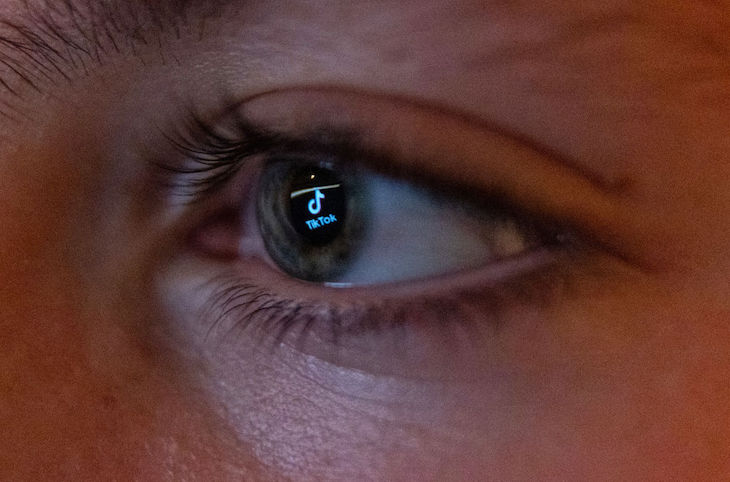As a former teacher, I can say with a reasonable degree of confidence that Bridget Phillipson ranks among the worst Education Secretaries this country has ever seen. Yet when Phillipson described the Tories’ attempt to ban phones from the classroom as a ‘headline-grabbing gimmick’ back in January, I found myself nodding along in agreement. She was right. Unfortunately, this moment of optimism about Phillipson was fleeting. The Education Secretary declared this month that headteachers have the government’s ‘full backing’ on removing phones from classrooms. This reversal of good judgement is yet another example of a policy that appears to place conviction over evidence.
Giving children unfettered access to a world they are developmentally ill-equipped to navigate is foolish
No, I don’t think that children should have phones; far from it. I sit firmly in the anti-smartphone camp; none of my children have devices. When I was teaching, it was obvious to me that phones were a constant source of bickering and disruption. Yet in pinning the blame entirely on phones and tablets, we risk ignoring the root cause of behavioural problems in schools.
Clearly giving children unfettered access to a world that they are developmentally ill-equipped to navigate is foolish. But those who seek to ban smartphones seem to want to treat devices almost as though they were a public health issue. Like anything in the talons of the pro-interventionists, calls for various forms of smartphone ban are often based on hyperbole.
Devices have been blamed for causing depression and anxiety en masse in teenagers. Such theories have given rise to the wholly impractical suggestion that sales of smartphones should be banned for under 16s altogether. ‘Addiction expert’ Mandy Saligari even likened giving a child a smartphone to handing them ‘a gram of cocaine’. Really?
The evidence for theories about smartphone addiction is not as conclusive as some experts would have you believe. Indeed, there is some indication that addictive behaviours among teenagers may be on the wane. Are smartphones, and smartphone addiction, solely to blame for poor mental health? That seems unlikely. It may well be instead that smartphones are a symptom, rather than a cause, of behavioural and concentration issues among kids. If so, this leaves us with a more fundamental question: why do children need these devices so much?
From my own experience as a teacher, smartphones are merely accelerating what is the crux of the real issue: the domination of peer culture over adult authority. The importance of having friends often now outcompetes the importance of teachers, parents, and even education itself. Children are now in constant communication with each other, even when they’re in the same room. Too often, their priority is endearing themselves to their peer group. We should ask ourselves: why?
In the secondary school I taught at, few seemed to notice the insidious link between encouraging closer friendship groups and the rise in indifference towards teachers (for which we, of course, blamed smartphones). But examined in the context of peer culture, this shift is hardly surprising. We know that many species, from humans to ducks, are incapable of properly attaching themselves to more than one compass point at a time; and so, when presented with various options, children must decide what matters most: their obligation to their teacher, or their obligation to their peers.
It is clear which one of those options is preferential: close attachment to an adult role model is vital for a child’s development. But there is a countervailing force in schools and among teachers that early independence away from adults is good for children. I do not agree; surely a twelve-year-old being the chief mentor of another twelve-year-old cannot be a good thing. As a society, however, we are obsessed by the concept of kids growing up and gaining their independence at a young age. Nearly every milestone we recognise, from our children walking to taking themselves to school on the bus, is a celebration of them moving away from us, without considering the suitability of those we push them towards.
Smartphones merely facilitated and sped up this shift. Over my career, teachers went from educators to glorified mediators, where part of their role was to ensure all children got along as a measure of their social aptitude.
We were told championing peer bonding would promote healthy social development, even though the science is murky as to whether peer interaction is essential for this. At the school I taught at, there were endless modern initiatives like ‘Anti-Bullying Week’, ‘World Kindness Day’ and ‘Friendship Friday’. But while these schemes were no doubt well intentioned, they had the effect of pushing children away from the importance and purpose of adults and teachers towards their peers. As the children I taught strengthened these bonds, at the expense of their relationships with adults, poor behaviour became all too common in the classroom. I would see other teachers write in academic reports at the end of a term that a child was a ‘well-liked member of the class’ or ‘popular among the other girls’. But why did such things matter? Too many teachers see classrooms as workshops for social skills and an arena to nurture friendships. The reality is that children are in school to learn.
We risk creating a generation of children who are not raised by the significant adults in their lives, but by each other. We view smartphones as the cause of the distraction, but is it the device, or an obsession to constantly seek the approval of friends, which is the real distraction? Is social media to blame? Or is the real problem that immature children are having to constantly jostle for position in an unstable social hierarchy that teachers are unwittingly creating? Smartphones did not produce this world, they merely reflect it. If smartphones were banned tomorrow, a deeper cultural problem would still remain. Banning smartphones might make adults feel good, but it won’t necessarily solve our kids’ problems.







Comments